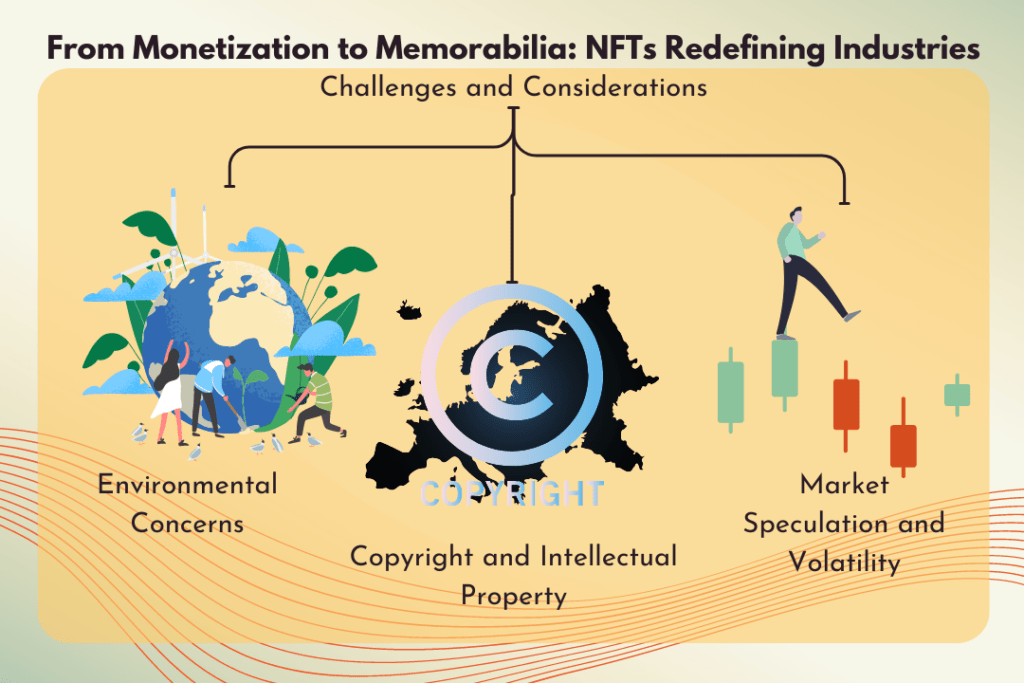Non-fungible tokens (NFTs) are digital assets that are unique and cannot be replaced by another token. They are stored on a blockchain, a secure and transparent ledger that records all transactions.
NFTs have the potential to revolutionize many industries, including:
- Art and collectibles: NFTs can be used to represent digital art, collectibles, and other items. This could make it easier to buy, sell, and trade these items, and could also help to prevent counterfeiting.
- Music and entertainment: NFTs can be used to represent songs, albums, tickets, and other music and entertainment assets. This could give artists more control over their work and could also help to create new forms of fan engagement.
- Sports: NFTs can be used to represent sports memorabilia, tickets, and other assets. This could make it easier for fans to own and trade these items, and could also help to create new forms of fan engagement.
- Gaming: NFTs can be used to represent in-game items, such as weapons, armor, and skins. This could make it easier for gamers to buy, sell, and trade these items, and could also help to create new forms of gameplay.
- Fashion: NFTs can be used to represent clothing, accessories, and other fashion items. This could make it easier for designers to create and sell limited-edition items, and could also help to create new forms of fashion experiences.
- Real estate: NFTs can be used to represent real estate properties. This could make it easier to buy, sell, and trade real estate, and could also help to create new forms of real estate investment.
These are just a few of the ways that NFTs redefining industries. As the technology continues to develop, it is likely that NFTs will have an even greater impact on our world.
Here are some specific examples of how NFTs are being used in these industries today:
- In the art world, NFTs have been used to sell digital artworks, such as the Beeple artwork that sold for $69 million. They have also been used to sell physical artworks, such as the physical painting that was sold with an accompanying NFT.
- In the music industry, NFTs have been used to sell songs, albums, and tickets. For example, Kings of Leon released their latest album as an NFT, and Grimes sold a digital artwork as an NFT for $3 million.
- In the sports industry, NFTs have been used to sell trading cards, tickets, and other memorabilia. For example, the NBA has released a series of NFT trading cards, and the NFL has auctioned off tickets to the Super Bowl as NFTs.
- In the gaming industry, NFTs have been used to represent in-game items, such as weapons, armor, and skins. For example, the game Axie Infinity allows players to earn NFTs by playing the game.
- In the fashion industry, NFTs have been used to sell clothing, accessories, and other fashion items. For example, the fashion brand Dolce & Gabbana released a collection of NFTs that included digital clothing and accessories.
- In the real estate industry, NFTs have been used to represent real estate properties. For example, the company Propy has created a platform that allows users to buy and sell real estate properties as NFTs.
These are just a few examples of how NFTs are being used today. As the technology continues to develop, it is likely that NFTs will have an even greater impact on our world.
The challenges of NFTs
NFTs are still a new technology, and there are some challenges that need to be addressed before they can be widely adopted. These challenges include:
- The environmental impact of NFTs: NFTs are minted on blockchains, which consume a lot of energy. This is a major concern for environmental advocates.
- The lack of regulation: NFTs are not currently regulated by any government or financial institution. This could make them vulnerable to fraud and other scams.
- The lack of liquidity: The market for NFTs is still relatively small, which means that it can be difficult to buy or sell NFTs at a fair price.
Despite these challenges, NFTs have the potential to revolutionize many industries. As the technology continues to develop, it is likely that NFTs will become more mainstream and have a greater impact on our world.
